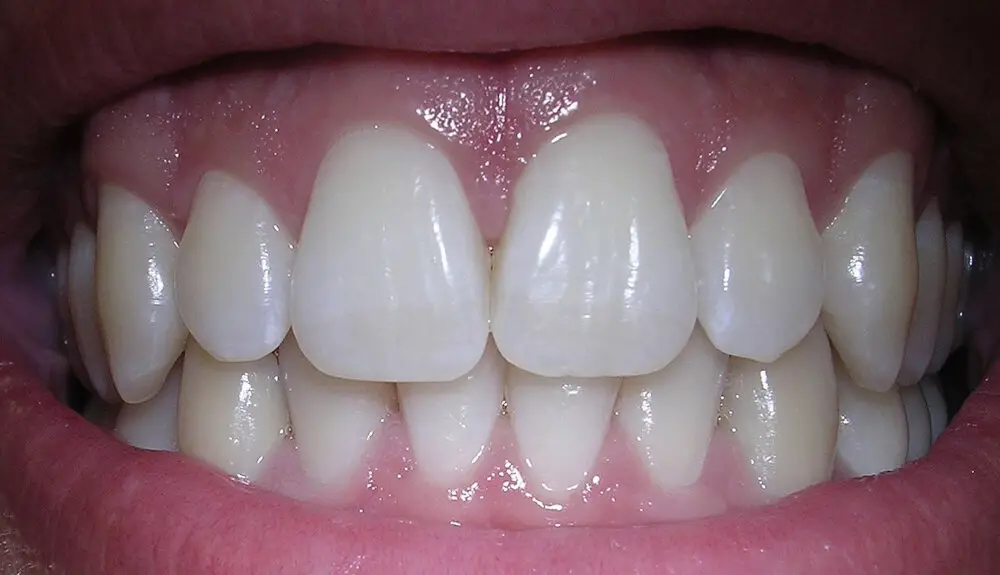PostTeeth Whitening Diet: What Foods You Can Safely Consume

A bright white smile can boost your self-confidence and make you feel great, and teeth whitening is an increasingly popular procedure that many people turn to in order to achieve this. However, it’s important to remember that the process of teeth whitening can be quite harsh on your teeth and gums, and it’s important to take good care of your mouth in the days and weeks following the procedure. One of the most important things to consider is your diet: certain foods and drinks can stain or damage your newly whitened teeth, so it’s important to know what you can safely consume. In this article, we’ll take a look at the post-teeth whitening diet and explore the foods and drinks that you can safely consume. We’ll also take a look at some of the things that you should avoid, and we’ll provide you with some tips on how to maintain your bright, white smile for as long as possible. Whether you’ve just undergone teeth whitening or you’re considering it in the future, this article will provide you with all the information you need to take good care of your teeth and enjoy a healthy, beautiful smile.
After undergoing teeth whitening treatment, it is essential to follow a post-treatment diet to maintain the results achieved. The process of teeth whitening often causes tooth sensitivity, and consuming certain foods can exacerbate this sensitivity, leading to discomfort. Additionally, eating foods that stain teeth can undo the effects of the treatment, resulting in discolored teeth once again. To prevent this, it is recommended to avoid foods and beverages that are high in acidity and have strong pigmentation, such as coffee, tea, red wine, tomato sauce, and citrus fruits. Instead, opt for a diet rich in non-acidic fruits and vegetables, lean proteins, and dairy products to keep your pearly whites healthy and bright.
After teeth whitening treatment, it is important to be mindful of what types of food to avoid and consume to maintain the results. Foods that are highly pigmented such as coffee, tea, red wine, and dark-colored berries should be avoided as they can stain teeth and diminish the whitening effects. Additionally, acidic and sugary foods can erode tooth enamel, making teeth more susceptible to staining. Instead, opt for white meats, fish, and vegetables as they are less likely to stain teeth and promote overall oral health. Drinking plenty of water also helps to rinse away any food particles that may cause discoloration. By following these guidelines, individuals can enjoy a post-teeth whitening diet that maintains their bright, white smile for longer.
Foods to Avoid

After teeth whitening, it is essential to avoid certain foods to maintain the results and prevent staining. These foods include dark-colored drinks such as coffee, tea, and red wine. These beverages contain chromogens, which are pigments that can stain teeth. Additionally, acidic drinks such as citrus juices and soda can erode tooth enamel, making them more susceptible to staining. It is best to avoid these drinks altogether or drink them through a straw to minimize contact with teeth. Foods high in sugar and carbohydrates should also be avoided after teeth whitening. These foods promote the growth of bacteria that can lead to plaque buildup and tooth decay. Sticky foods such as caramel and gummies can also stick to teeth and be difficult to remove, increasing the risk of staining. Instead, opt for nutrient-dense foods that promote oral health, such as fruits and vegetables. Foods high in calcium, such as cheese and yogurt, can also strengthen teeth and protect against staining. By avoiding these foods and making healthier choices, you can maintain your teeth whitening results and promote overall oral health.
After undergoing teeth whitening treatment, it is essential to avoid certain foods that can stain or discolor your newly whitened teeth. Foods that are highly pigmented, acidic, or contain tannins can easily undo the effects of teeth whitening. Highly pigmented foods such as berries, beets, and tomato sauce can leave their color on your teeth, while acidic foods like citrus fruits and vinegar can erode the enamel on your teeth, making them more susceptible to staining. Tannins, which are commonly found in tea, coffee, and red wine, can also darken your teeth by binding to the enamel. Therefore, it is best to avoid these foods for at least 24-48 hours after teeth whitening to maintain the bright, white color of your teeth.
When it comes to maintaining a bright and healthy smile after teeth whitening, there are certain foods that should be avoided. Foods high in acidity, such as citrus fruits and vinegar-based dressings, can erode tooth enamel and cause sensitivity. Sugary foods, such as candy and soda, can lead to tooth decay and stained teeth. Dark pigmented foods, such as coffee and red wine, can also cause staining. It’s important to choose foods that are gentle on the teeth, such as lean proteins, leafy greens, and dairy products, to help maintain a bright and healthy smile.
Foods to Consume

After undergoing a teeth whitening treatment, it is essential to maintain a healthy diet to ensure the longevity of your pearly whites. Certain foods are safe to consume, and they can even help prevent staining and discoloration. Firstly, incorporating dairy products such as milk, cheese, and yogurt into your diet can be beneficial. Dairy products are rich in calcium and phosphorus, which are essential minerals for strengthening the enamel and protecting against tooth decay. Additionally, cheese can help neutralize the acids in your mouth, which can decrease the risk of cavities and enamel erosion. Another food group that is safe to consume after teeth whitening treatment is fruits and vegetables. Crunchy and fibrous fruits and vegetables such as apples, carrots, and celery can help scrub away surface stains on your teeth. Moreover, they are packed with vitamins and minerals that can strengthen your teeth and gums. Citrus fruits such as oranges, lemons, and grapefruits should be consumed in moderation as they are acidic and can erode the enamel. Nevertheless, they are rich in vitamin C, which can help prevent gum disease. Overall, a well-balanced diet consisting of these foods can help maintain your newly whitened teeth and improve your overall oral health.
After teeth whitening, it is crucial to follow a post-whitening diet, and it’s advisable to consume foods that are beneficial for your teeth and gums. Soft, low-acidic, and non-staining foods are considered safe to eat as they won’t harm the newly whitened teeth. Some examples of such foods are cooked vegetables, fruits without seeds or skin, eggs, yogurt, fish, and lean meats. These foods are rich in vitamins, minerals, and proteins, which help in repairing and rebuilding the tooth enamel. Additionally, these foods promote saliva production, which neutralizes the acids present in the mouth, preventing decay and erosion. Therefore, incorporating these foods in your post-teeth whitening diet will help maintain your bright and healthy smile for a longer time.
After undergoing teeth whitening treatment, it’s important to maintain a healthy diet to ensure the longevity of your newly brightened smile. Foods high in fiber, such as fruits, vegetables, and whole grains, can help remove surface stains caused by food and drink. Calcium-rich foods like dairy products and leafy greens can strengthen tooth enamel and promote overall oral health. Additionally, consuming foods high in vitamins C and D, such as citrus fruits and fatty fish, can help prevent gum disease and promote healthy teeth and gums. Incorporating these nutrient-rich foods into your diet can not only benefit your oral health but also provide overall health benefits.
Meal Plan Ideas

After undergoing the teeth whitening treatment, it is essential to follow a post-teeth whitening diet to avoid any staining or discoloration of your teeth. A meal plan that includes foods that are low in acid, sugar, and pigmentation will help maintain the whiteness of your teeth. Some meal plan ideas that you can incorporate into your diet include grilled chicken or fish with steamed vegetables, quinoa salad with avocado and grilled shrimp, and roasted sweet potatoes with a side of sautéed spinach. These options are not only nutritious but also promote oral health and prevent further discoloration. Another meal plan idea that you can add to your post-teeth whitening diet is smoothies. Smoothies are a great way to incorporate fruits and vegetables into your diet while also keeping your teeth white. You can make a smoothie using ingredients such as spinach, kale, banana, coconut water, and ginger. These ingredients are not only beneficial for your overall health but also help in removing the toxins from your body that can contribute to the yellowing of your teeth. Incorporating these meal plan ideas into your post-teeth whitening diet will not only help you maintain the whiteness of your teeth but also promote good oral health.
After teeth whitening, it’s important to be mindful of what you eat to ensure the best results. For the first 24 hours, it’s recommended to stick to a soft food diet that’s low in acidity and pigmentation. A sample meal plan could include scrambled eggs for breakfast, a grilled chicken salad for lunch, and baked salmon with steamed vegetables for dinner. Snacks can include mashed avocado or hummus with soft pita bread. It’s also important to avoid any staining drinks such as coffee, tea, and red wine, as well as any hard or crunchy foods that can potentially damage the teeth or cause sensitivity. Following a post-teeth whitening diet can help maintain the brightness of your newly whitened teeth and keep your smile looking its best.
Following a teeth whitening treatment, it is crucial to maintain a healthy diet to avoid discoloration and sensitivity. A sample meal plan for the first few days post-treatment could include oatmeal with fruit and nuts for breakfast, grilled chicken salad for lunch, and baked salmon with roasted vegetables for dinner. In the following weeks, one can incorporate more diverse options such as quinoa bowls with mixed greens, grilled vegetables, and avocado for lunch or a stir-fry with tofu and brown rice for dinner. It is important to avoid acidic and highly pigmented foods such as coffee, tea, red wine, and tomato-based sauces during this time to ensure optimal results. Additionally, staying hydrated and incorporating calcium-rich foods such as spinach, almonds, and cheese can help strengthen and protect the teeth.
Other Tips and Tricks

In addition to avoiding certain foods and beverages, there are other tips and tricks that can help maximize the results of your teeth whitening procedure. Firstly, it is important to maintain good oral hygiene practices, such as brushing and flossing regularly, to prevent the buildup of plaque and stains on your teeth. Using a whitening toothpaste can also help maintain the brightness of your teeth. Another helpful tip is to incorporate foods that promote oral health into your diet. Foods high in calcium, such as milk, cheese, and yogurt, can strengthen your teeth and promote overall oral health. Crunchy fruits and vegetables, such as apples and carrots, can also help remove surface stains from teeth and stimulate saliva production, which helps neutralize harmful acids in the mouth. Lastly, drinking plenty of water throughout the day can help rinse away food particles and keep your mouth hydrated, which can prevent staining and promote overall oral health. By following these additional tips and tricks, you can help maintain the results of your teeth whitening procedure and promote overall oral health.
Maintaining a post-teeth whitening diet is crucial to ensure the longevity of the whitening effect. It’s best to avoid highly pigmented foods and drinks, such as coffee, tea, red wine, and berries, as they can stain your teeth. Instead, opt for foods that are low in pigments, such as white meats, fish, plain yogurt, and white rice. It’s also advised to consume foods high in fiber, such as apples, carrots, and celery, as they help remove surface stains on your teeth. Additionally, drinking water after meals can help wash away any food particles that could potentially stain your teeth. By following these helpful tips and tricks, you can maintain your pearly whites and keep them shining bright for years to come.
When it comes to snacking and drinks after teeth whitening, it’s important to choose options that won’t compromise your results. Fresh fruits and vegetables such as apples, carrots, celery, and cucumbers are great choices that can help remove any lingering stains. Nuts, such as almonds and cashews, are also good options as they contain protein and healthy fats that can keep you feeling full. For drinks, water should be your go-to choice as it helps to rinse away any food particles that can cause staining. Green tea is another good option as it contains antioxidants that can help improve the health of your teeth and gums. It’s best to avoid sugary and acidic drinks such as soda and citrus juices, as they can erode your tooth enamel and undo your whitening progress.
After a teeth whitening treatment, it is essential to follow a post-teeth whitening diet to ensure that you maintain the results of your treatment for a longer period. The foods and drinks you consume can have a significant impact on the color of your teeth, and consuming the wrong foods and drinks after the treatment can lead to staining and discoloration, negating the effect of the whitening treatment. A post-teeth whitening diet involves consuming foods that are low in acidity and pigment, such as lean proteins, dairy products, fruits, and vegetables. It is also essential to avoid consuming foods and drinks that are high in acid and pigment, including coffee, tea, red wine, and acidic fruits. By following a post-teeth whitening diet, you can ensure that your teeth remain bright and white for a more extended period, giving you a confident and radiant smile.
After getting your teeth whitened, it’s important to maintain a healthy diet to ensure that your pearly whites stay bright and beautiful. It’s recommended to avoid consuming foods and beverages that are known to cause staining, such as coffee, tea, red wine, and dark-colored fruits and vegetables. Instead, opt for foods that are high in calcium, such as dairy products and leafy greens, as they help to strengthen your teeth. Additionally, drinking plenty of water throughout the day can help to rinse away any food particles and keep your mouth hydrated. By making these simple dietary adjustments, you can help to ensure that your teeth stay white and healthy for years to come.
Conclusion

In conclusion, after undergoing teeth whitening, it is essential to maintain a healthy and safe diet to prevent staining and maintain a bright smile. Incorporating foods like dairy products, crunchy fruits and vegetables, lean proteins, and water can promote oral health and protect your pearly whites. However, it’s crucial to avoid foods and drinks that can cause staining, such as coffee, tea, red wine, and dark-colored sauces. By following a post-teeth whitening diet, you can enjoy a brighter and healthier smile for longer periods. Remember, a healthy diet not only benefits your teeth but also your overall well-being. So choose wisely and nourish your body with the right foods to maintain that perfect smile.







